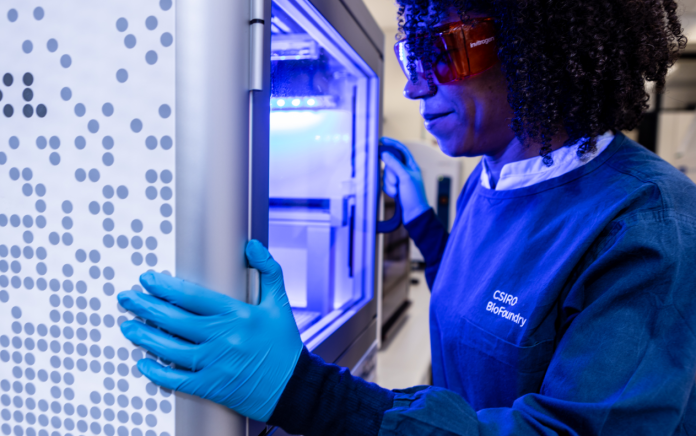
CSIRO, Australia’s national research agency, will invest $50 million in four new initiatives over the next five years to generate crucial breakthroughs in challenging national issues.
The projects are part of CSIRO’s $200 million Future Science Platforms (FSPs) portfolio, which includes programs that collaborate with universities and industry to push the frontiers of existing research.
They include:
The Revolutionary Energy Storage Systems FSP. It will reimagine Australia’s electricity grid from one designed to support fossil fuels to instead incorporate more sources of renewable power.
The Permanent Carbon Locking FSP. It will harness biology, chemistry and engineering to drive innovation in carbon capture and carbon storage science.
The Immune Resilience FSP. It will build on the accelerated understanding of human and animal immune systems gained from COVID-19 to develop technologies that prevent, protect, and respond to emerging health threats.
The Advanced Engineering Biology FSP. It will deliver new tools to develop fast-tracked solutions for some of the most pressing challenges of this century – from food security to health and wellbeing and carbon-neutral industries.
Professor Bronwyn Fox, CSIRO’s Chief Scientist, stated that the new FSPs will bring together business and science, including early-career researchers, to produce cutting-edge science that will influence our future.
“CSIRO’s Future Science Platforms are a big part of our strategy to stay at the forefront of discovery,” Prof Fox said.
“They are a critical part of the way we do science – they are our investment in cutting-edge, transformative research where we push the boundaries of science and lean into the seemingly impossible.
“The foundational research that these four new Future Science Platforms will undertake will pave the way for innovations and catalyse new industries that will help us to better manage our health, food security, natural resources and environment in the decades to come.”
Dr Andrew Lenton, Director of the Permanent Carbon Locking FSP, said the research would focus on rapid atmospheric carbon removal and permanent carbon storage, as well as combining the two in unique ways.
“If we are to avoid the worst impacts of climate change, breakthroughs and innovation in permanent carbon removal from the atmosphere is needed,” Dr Lenton said.
“The future science and capability developed in this FSP have the potential to underpin new industries and reshape existing industries for Australia and beyond, with CSIRO’s science at the centre.”
New and developing knowledge, according to Dr Tim Doran, Interim Director of the Immune Resilience FSP, might allow solutions that harness immune responses to better combat illnesses.
“The rapid acceleration in immune-based technologies in recent years has opened up so many biotech opportunities, and we want to build on that momentum,” Dr Doran said.
“This innovative research will further unravel the complex nature of immune systems and develop new strategies to enhance immune resilience in both humans and animals.”
According to Dr Colin Scott, Interim Director of the Advanced Engineering Biology FSP, the development of strong new tools for biological design and prototyping will accelerate the delivery of meaningful new goods and services.
“This research will help deliver the 50,000 jobs and $30 billion a year that have been identified in the CSIRO Synthetic Biology Roadmap,” Dr Scott said.
“This is a really exciting time for the bioeconomy in Australia. We are seeing significant growth in start-ups and in the wider innovation ecosystem. Increased investment in this research area will help ensure that Australia is a world leader in engineering biology.”



















